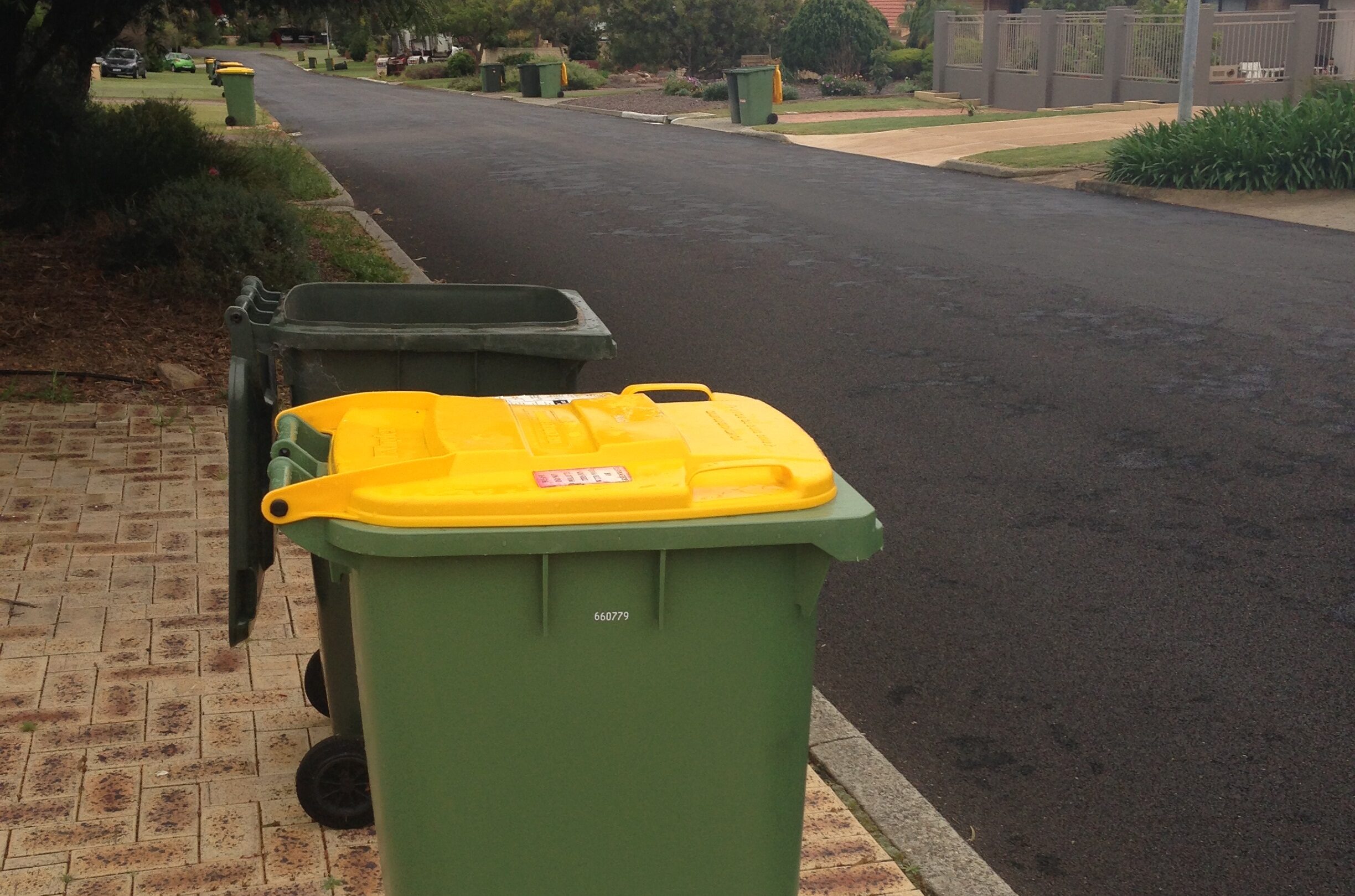A non-wastie view of recycling

The complexity of the yellow lid recycling bin
By: Zoe Watkins, MRA Consulting Group
The items accepted in the yellow lid recycling bins are inconsistent across council areas and that leads to confusion.
The standard materials widely accepted are:
- Paper and cardboard;
- Glass;
- Aluminum and steel cans; and
- Plastic containers (PET, HDPE, PP and PVC).
I cannot believe the knowledge you need to have to recycle properly (where recycling is offered. Of NSW’s 128 councils, there are still 18 that do not offer a recycling bin!) Since joining MRA Consulting Group I have become much more aware of the problems and inconsistences in the system across councils and States.
Plastic
Plastics are separated into many different material categories including polypropylene, polystyrene, LDPE, polypropylene, single use plastic bags, non-container packaging, and hard plastics (e.g. plant pots). Some of these are accepted in the yellow recycling bins in some council areas but not all.
It makes no sense to use the plastic polymer type as the determining factor in whether something is recyclable or not. Most people do not have degrees in polymer design. Show them two plastic items and they would not know the difference. Nor should they need to. It just leads to confusion amongst residents.
Without information explaining the different types of plastic and if they are accepted in your recycling bin, how are you supposed to know? And wouldn’t it be easier to have one uniform list, available to all local councils that explains it. The Australasian Recycling Label (ARL) is a good reform but it only appears on about 60% of materials from APCO members and 0% from those packaging providers who are not APCO members.
Then we have council education programs which are sporadic and individual. How hard can it be for councils to get together, define one acceptable list of materials and push out a consistent and sustained education campaign?
Liquid Paper Board
Another confusing product is liquid paper board (LPB), commonly refered to as beverage carton. LPB is typically a sheet of cardboard sandwiched between two layers of polypropylene or foil, to create a hybrid cardboard material, strong enough to hold liquid. Items such as juice boxes/poppers, milk/stock cartons are made out of this material.
While it contains fibre (cardboard), which is accepted in the yellow recycling bin, it also contains plastic and foil. Consequently the paper mills hate it. So some councils accept it but many do not. In NSW 91 councils allow LPB in the recycling bin but 110 do not. How is that for consistency. If we want it in the bins then we need to come to an arrangement with paper mills that they can accept it or pay the MRFs to separate it out. That means more costs to ratepayers.
What about pizza boxes?
A pizza box is cardboard, so most people think they should be recycled. That is correct.
But some councils don’t due to the risk of food contamination.
So yes it should be allowed but only when clean.
Batteries
Batteries are 100% recyclable but not through the yellow lid bin. The risk of fire is too high. So, it’s baffling that 6/110 councils in NSW allow them in the yellow lid bin.
Aluminium
What about scrunched up aluminium foil? Allowed or not. There are no clear rules between councils.
Coffee cups
Six councils allow coffee cups in the yellow top bin but 110 do not (in NSW).
Conclusions
These are just a few of the day to day confusions in recycling. It is not surprising therefore that contamination rates in yellow top bin are around 10% (compared to 2% in food and garden organics bins where what’s included and what’s excluded is much clearer).
There is still no agreed list of acceptable materials in recycling bins around each State, let alone around the country:
- ACOR tried with project yellow but it has not been taken up by councils.
- APCO is trying with the ARL but it is not linked to council decisions or MRF contracts.
- The Federal Minister Trevor Evans has it on his “to do” list.
I don’t want to get a PhD in product design just to be able to recycle properly. I do want the councils, the states and the packaging industry to agree a list, so that I don’t have to.



